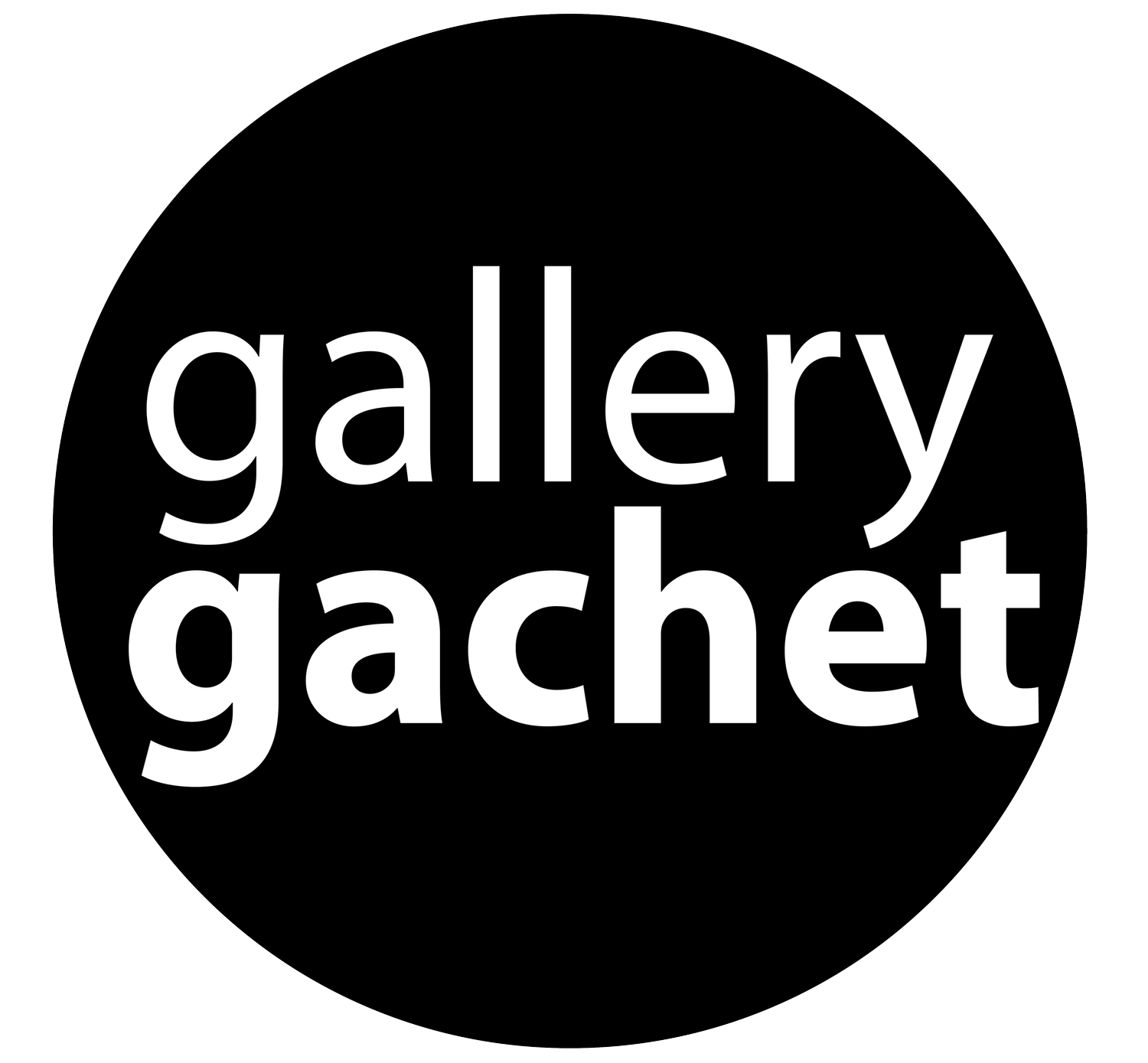Saltwater Cures All
Racquel Rowe
Saltwater Cures All
Running February 11, 2023 to March 11, 2023.
Opening Reception Friday / February 10 / 7pm to 9pm.
Saltwater Cures All is a compilation of video works featuring Racquel Rowe in her native island of Barbados. Rowe explores ideas of the formation of the Black Atlantic, personal and familial connections to the sea, relationships between Black people and water and the idea of rebirth. Many of the works feature the East coast of the island, the first point of contact that European colonialists would have made; through the juxtaposition of land and sea, Rowe asks viewers to consider the implications of these idealized scenes and their historical and present-day implications for the Black populations that call these islands home.
“This boat is your womb, a matrix, and yet it exiles you.
This boat: pregnant with as many dead as living under sentence of death.”
Èdouard Glissant, The Open Boat from The Poetics of Relation.
“The sea. The sea has locked them up. The sea is History.”
The Sea is History, Derek Walcott
“Where did you first learn how to swim?” Racquel asks in our first studio visit together. “I don’t really remember,” I answer, “I had swimming lessons when I was younger, I always felt safe in the water.” Safety and water are two words rarely used in tandem when Black people discuss bodies of water. I remember hearing tales about the sea that enticed and cautioned, like my brother’s shock when he lost his flip-flops to the Atlantic Ocean on Bar Beach in Lagos; I wondered how that event, and the ever-pervasive lore regarding Black Bodies and Bodies of Water, contributed to his aversion of water and his inability to swim.
Rinaldo Walcott declared in the Black Aquatic that Black people became divorced from water — from seas, oceans, lakes, rivers and creeks. This disunion between Black bodies and Bodies of Water seems reasonable to some. For most Black people, bodies of water act as a natural embodiment of the categorization, death, commodification and dehumanization that we have experienced in the course of our history as a people, thus reinforcing the label of diminished other posed on Black people and Blackness in the West. Walcott labels the ambivalent relationship and history between Black people and bodies of water as the Black Aquatic and further poses the Black Aquatic as a conceptual tool that could be used to understand the foundational emergence of Blackness, its aesthetic narratology and the hauntology of the contemporary state of Blackness. Although Black people have historically posed bodies of water as a site of death and loss, Glissant and Walcott suggest that these precarious bodies of water also canonically act as sites of birth/rebirth, emergence and the phenological root central to the construction of Blackness, the Black Atlantic and our current understanding of “race.”
In Saltwater Cures All, Barbadian-born performance and video artist Racquel Rowe follows the theoretical precedent set by Glissant and Walcott regarding the relationship between Black Bodies and Bodies of Water by visualizing the role that bodies of water play in framing/reframing the interrelations between water, land, societal bonds and self. For Rowe, the sea is the architect of relations, the mediator, the carrier of lost knowledge and history, the gateway of possibility, the tyrant and the womb of the Black Atlantic.
Saltwater Cures All compromises of video works set in Rowe’s native Island of Barbados. Through intentional framing, Rowe explores the ties that bind water with various subjects that include land, self, nationhood and familial ties. At the core of Rowe’s artistic practice is the concept of the body as a medium. Rowe positions herself and her mother, engaging in a ritual of self where she bathes in the sea, indicating shared faith and communal bounds as her collaborator (Kesean Abrams) performs the Christian ritual of baptism.
Through the rituals of self, Rowe attempts to subvert the alienation between Black Bodies and Bodies of Water by underscoring the ways that water is a part of Black everyday life and our construction/validation of self and identity. This ritual of self in Rowe’s work is common practice in Barbados, referred to as sea bathing. Sea bathing is a time honoured ritual practiced by elders in the Bajan community; the almost exaggerated ritual of washing one’s body off in the sea denotes the distinct practices and complex lore that various members of the Black Atlantic have built around bodies of water.
The rituals of shared faith and communal bonds in Rowe’s work are framed under the ritual of baptism and act as a testament to bodies of water and their ability to cleanse one’s being and rebirth one’s ideas. Baptism highlights the importance of familial bonds and the basic human need to belong to bodies of water, in its birthing of Blackness, and that which it’s provided to members of the Black Diaspora.
Many of Rowe’s panoramic shots were taken on the East coast of Barbados, the site of the first point of contact that European colonists made with the Island of Barbados. These scenic shots ask viewers to assess their relations with the land and the human-centric expectation of land to be both a resource and a performer to validate our individual paradigms of place. Through the juxtaposition of land and sea, Rowe explores how various people living on islands in the Caribbean have been exploited by white colonists and have had their homes go from being posed as sugar plantations to leisure plantations. Rowe attempts to deterritorialize the colonial imagination by revealing bodies of land on the island that are largely uninhabited. These landscapes would have been deemed too rough for sugar plantations and too banal to be marketed to tourists, which would have allowed them to grow and exist on their own accord, with very little human intervention and act as a formidable reminder of the ability of the natural world to build on and within itself and resist human construction and expectations.
Saltwater Cures All emerges in line with the Fanonion thought of attempting to both grapple with history and move beyond it. Rowe asks the viewer to consider the implications of idealized scenes and their historical and present-day implications for Black populations across the diaspora while imploring the Black viewer to consider the same waters that played its role in our oppression and as our very own safe haven.
Olumoroti George
Artistic Director
Demi London
Executive Director
About the Artist
Racquel Rowe is an interdisciplinary artist from the island of Barbados currently residing in Canada. She’s exhibited across Canada and holds an MFA from the University of Waterloo and a BA(Hons) in History and Studio Art from the University of Guelph. Her practice is continuously influenced by many aspects of history, matrilineal family structures, diasporic communities, and her upbringing in Barbados. Her work takes the form of performance, video, site specific work, and installation.
Exhibition Pictures
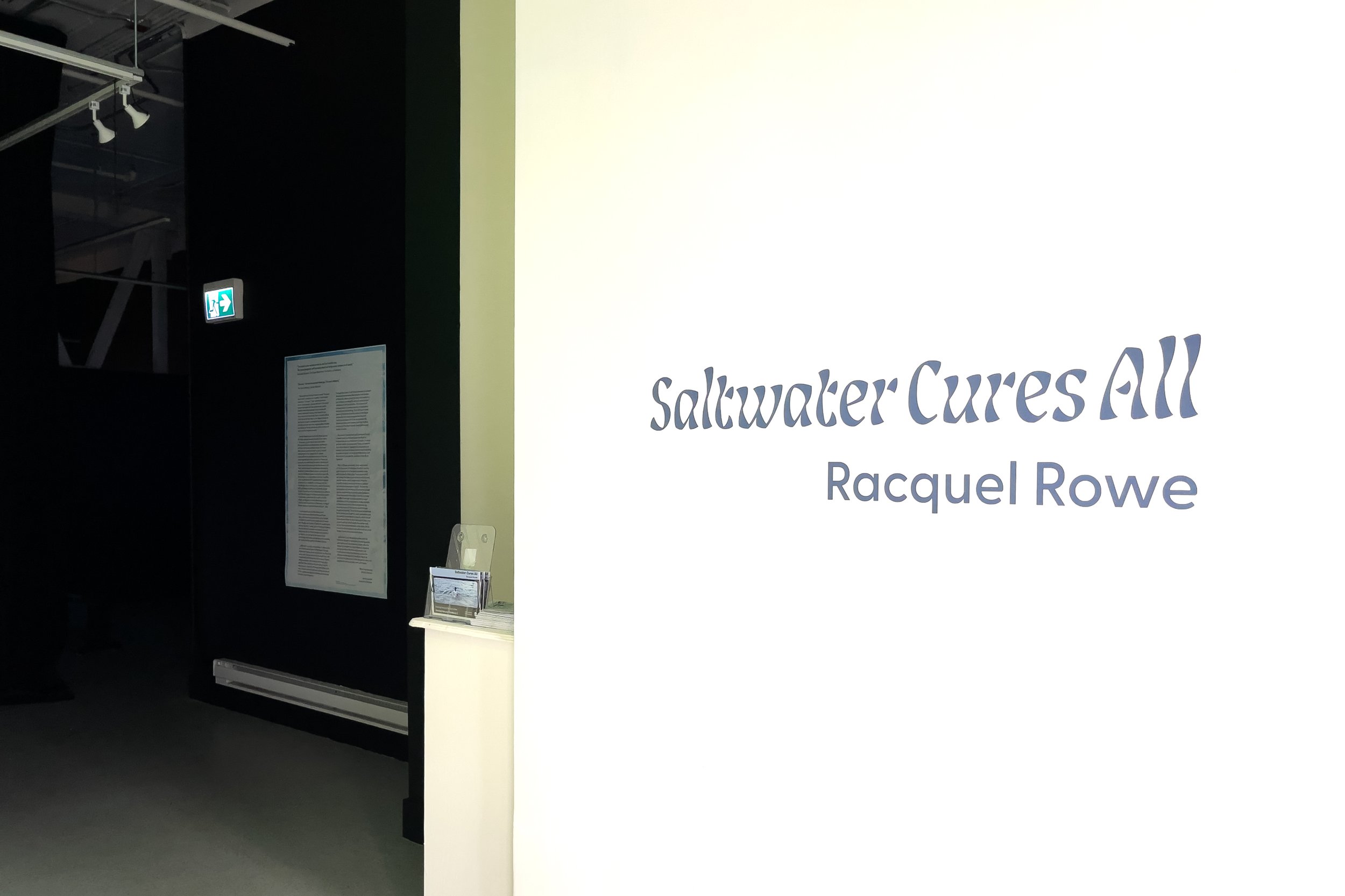
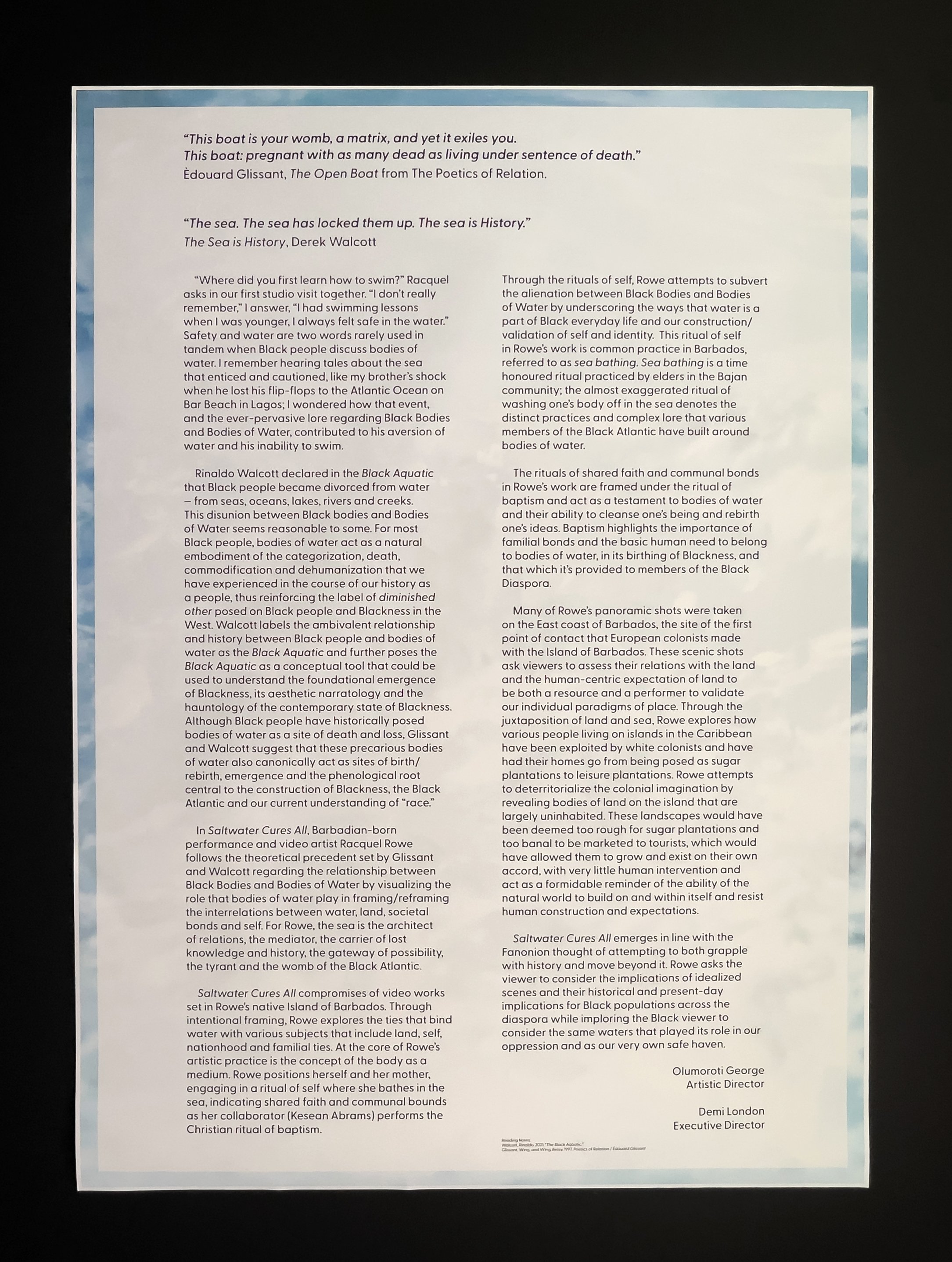
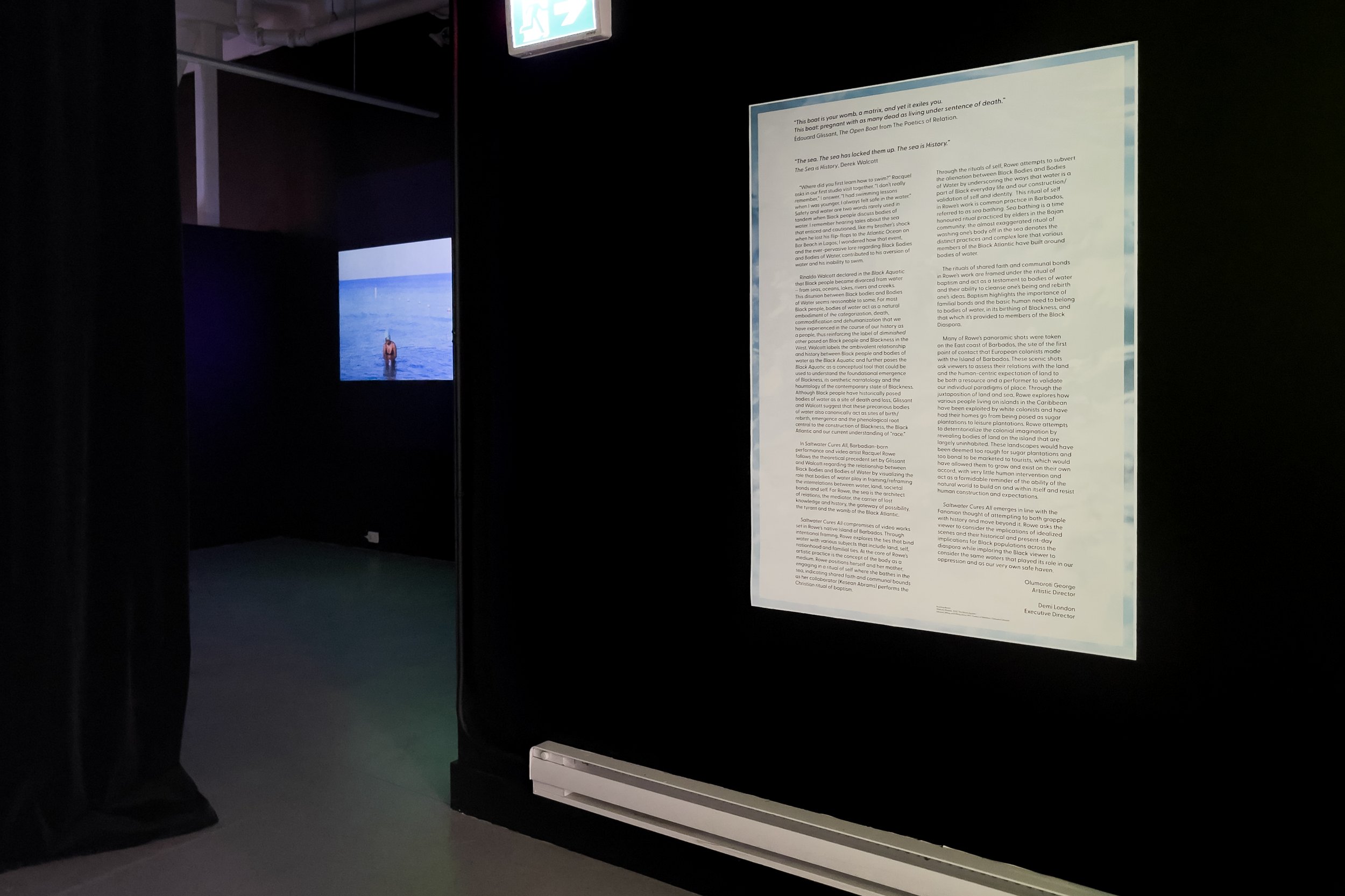
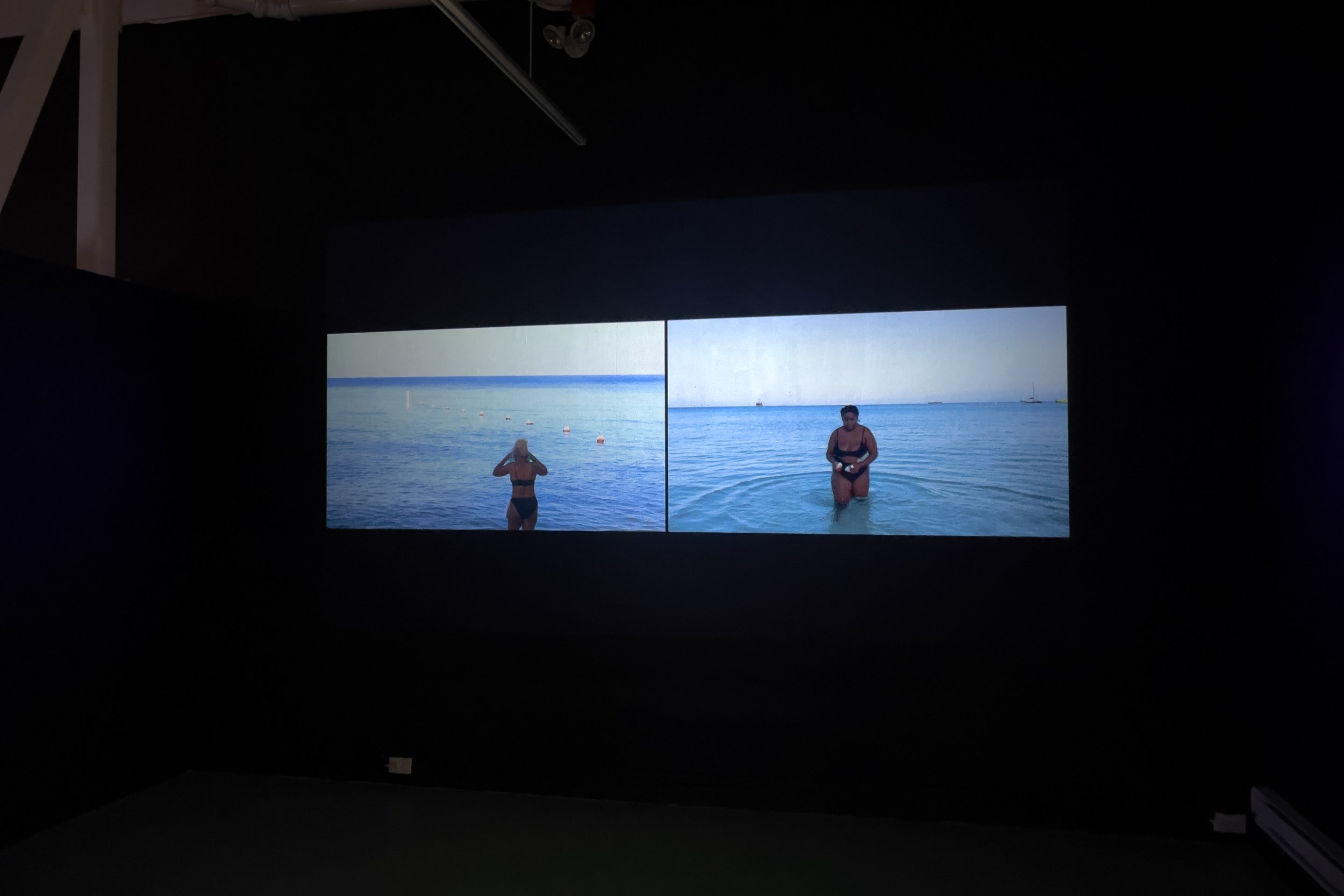
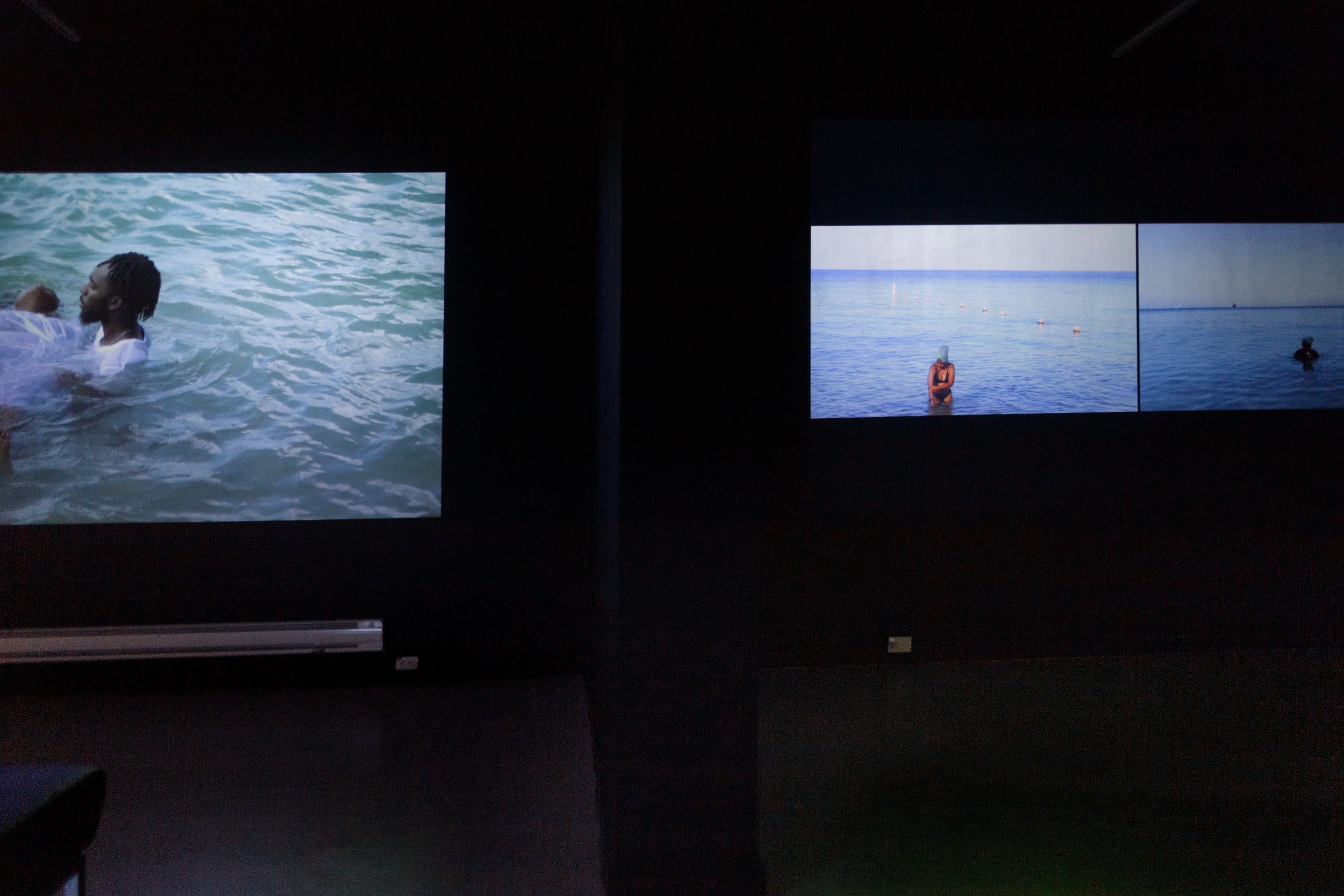
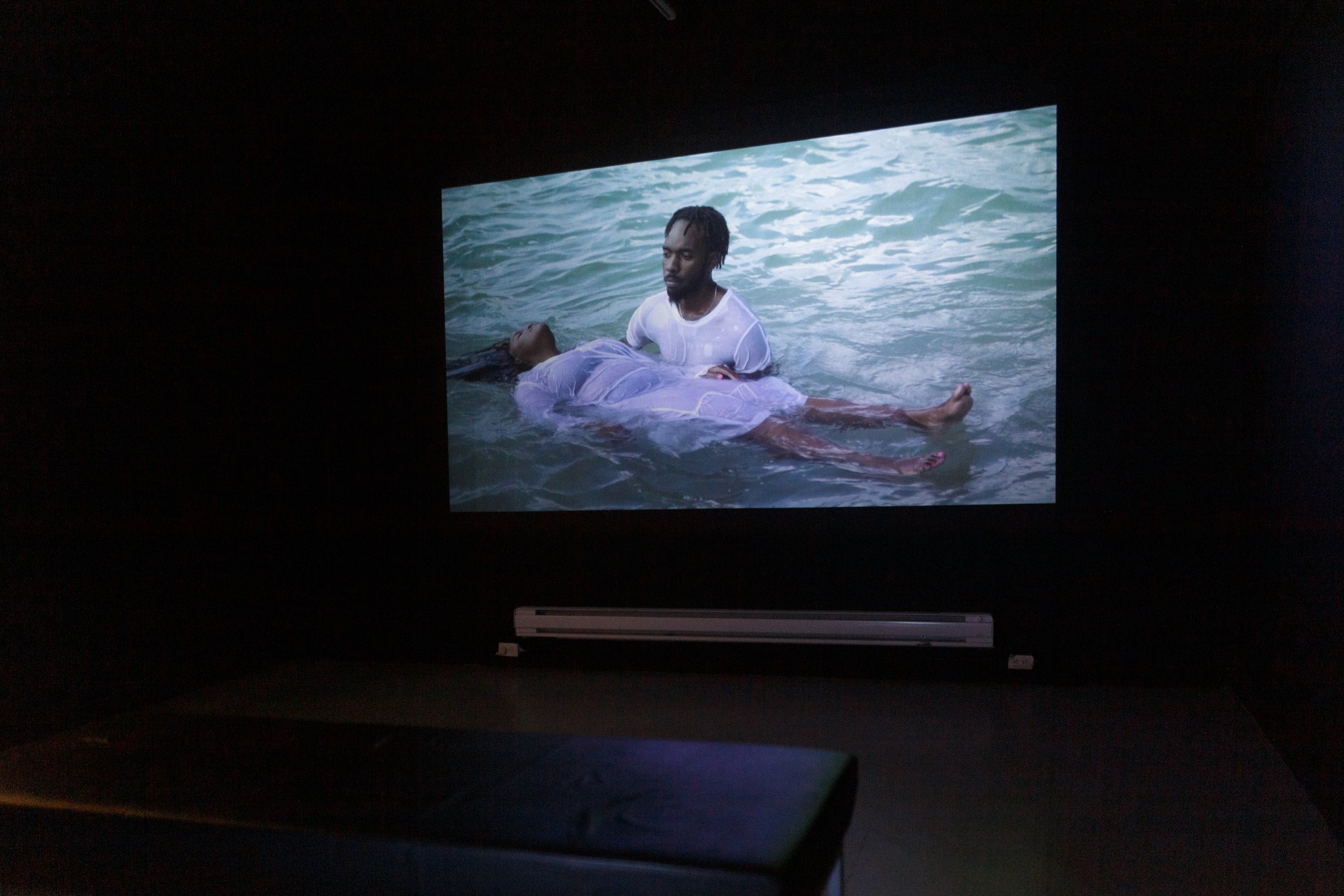
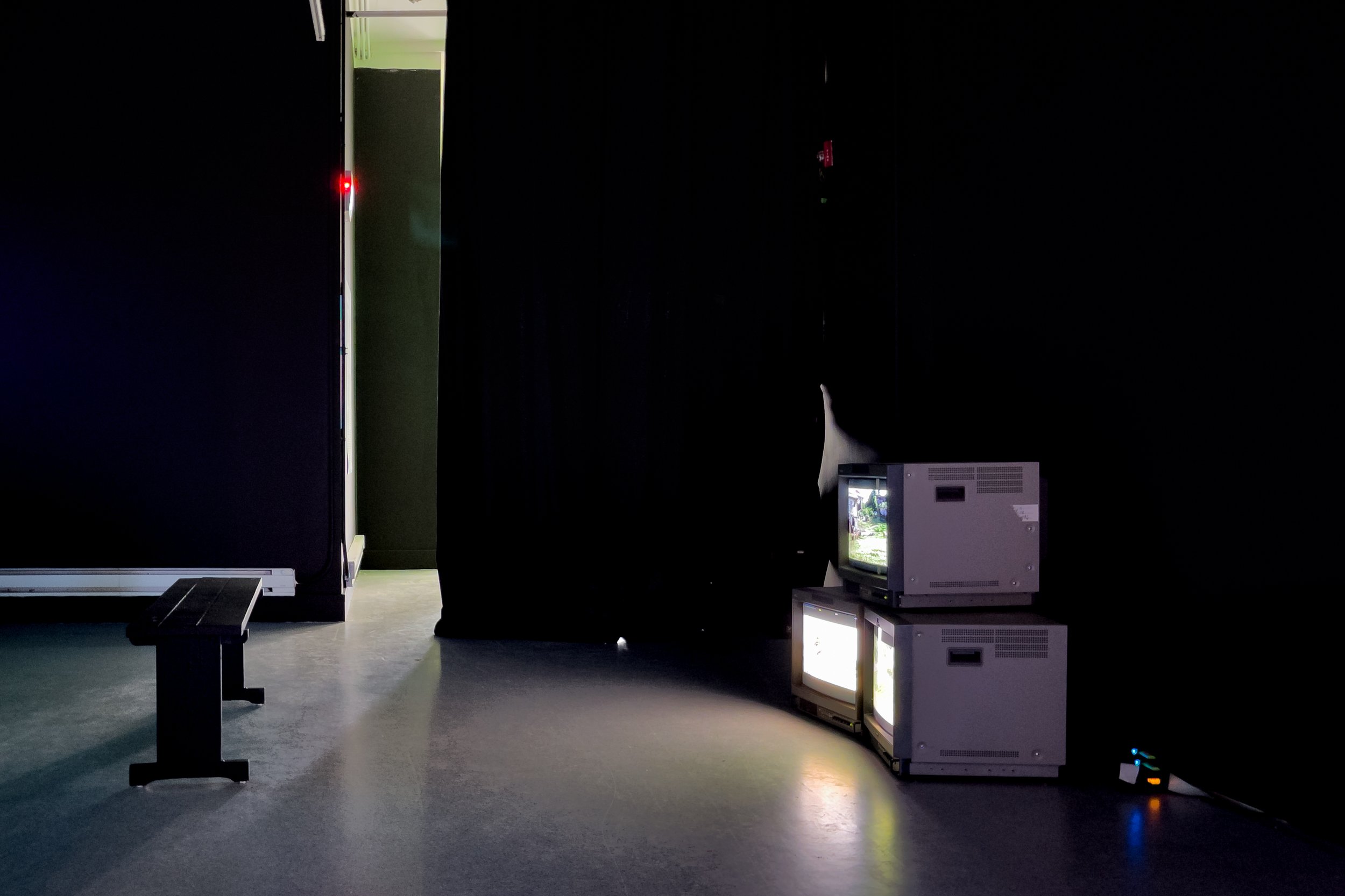
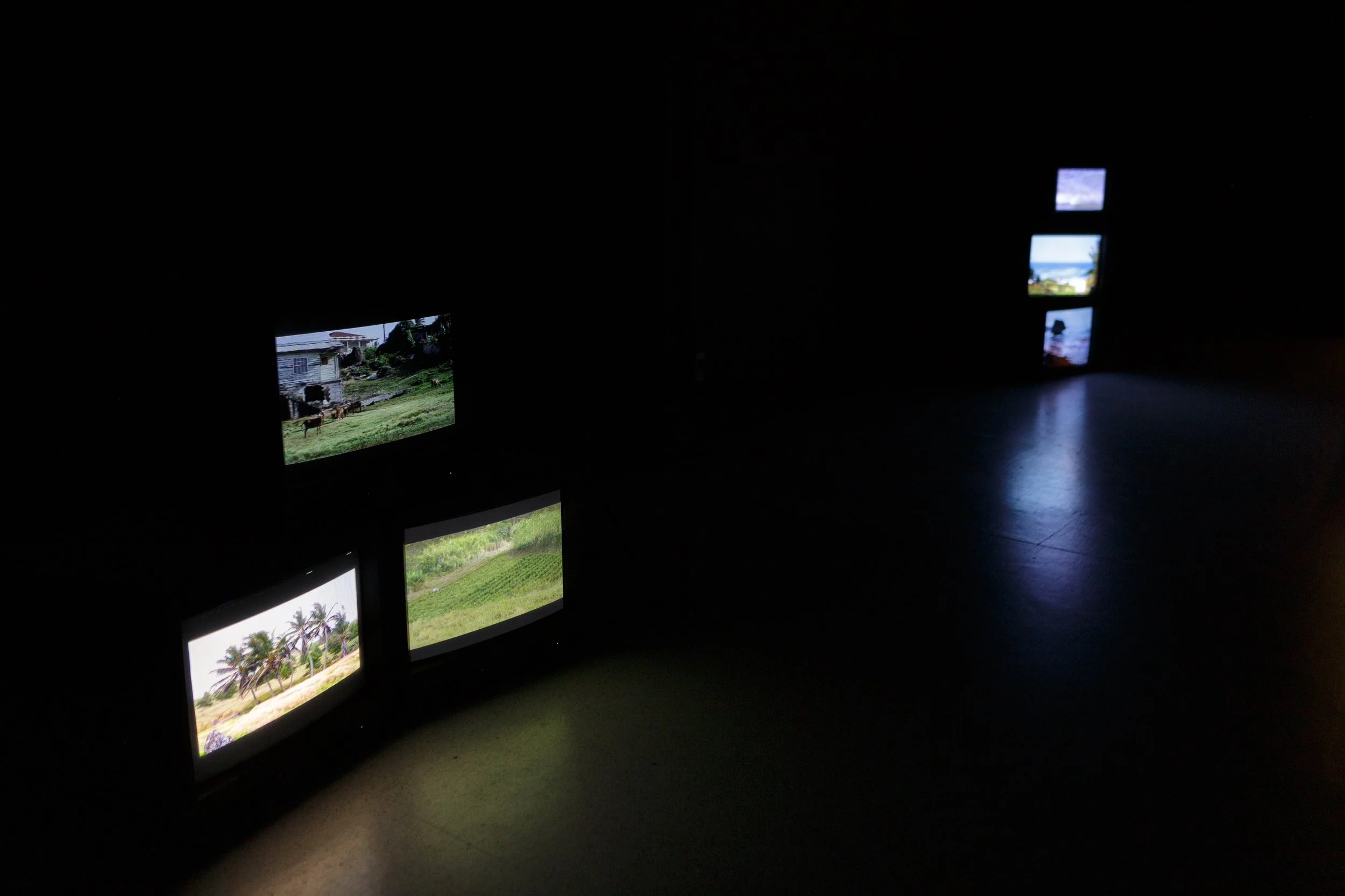
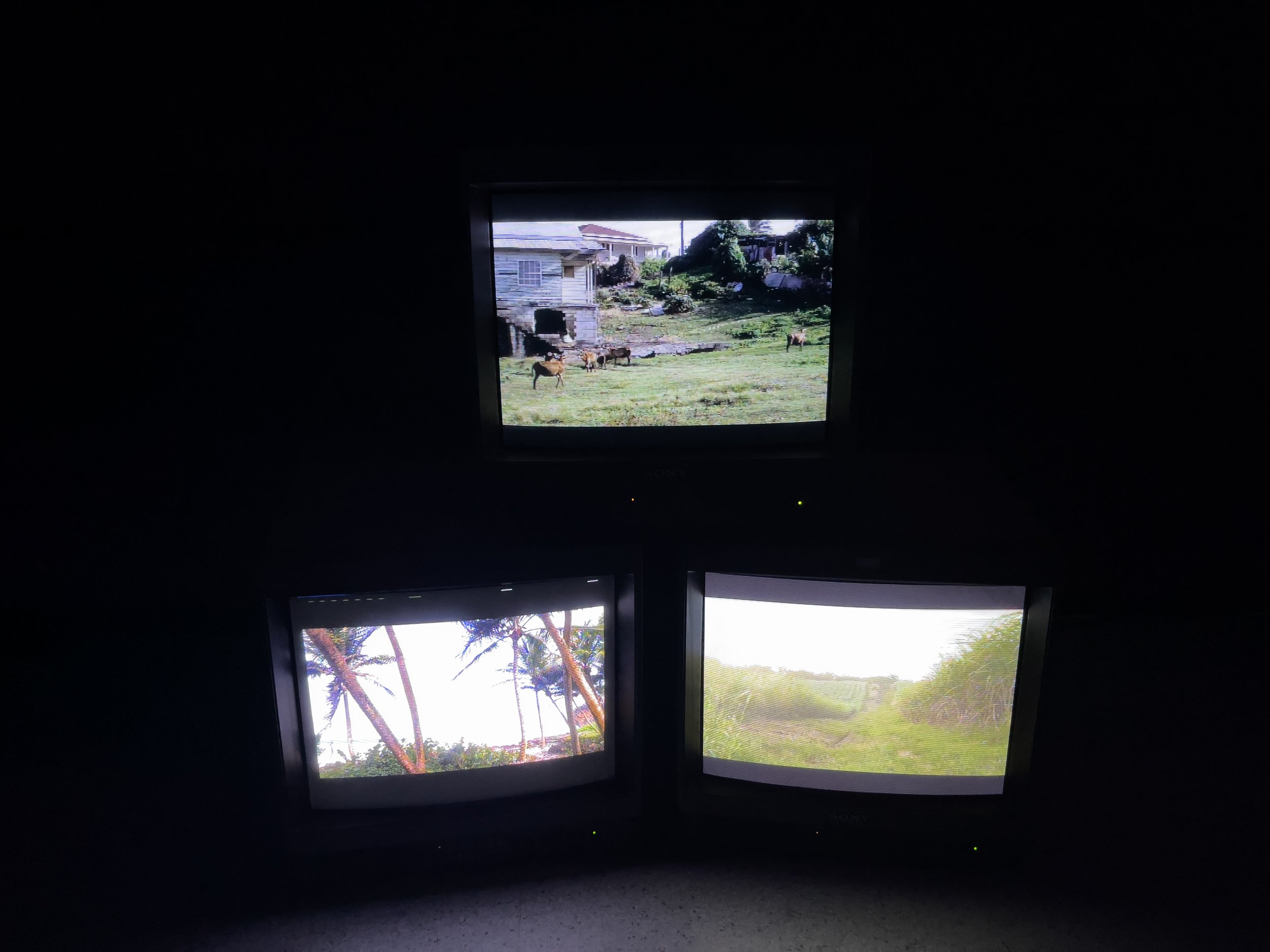
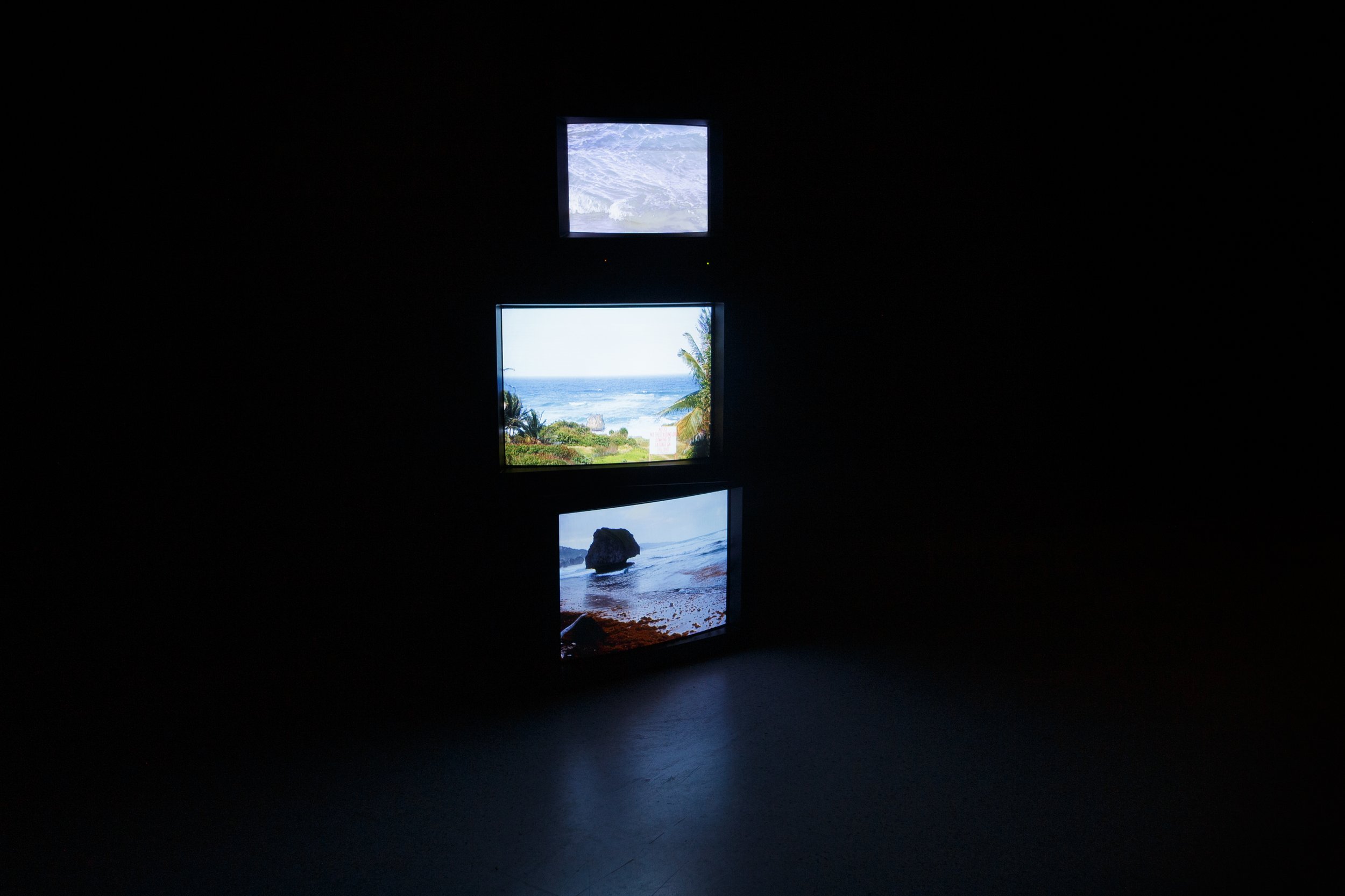
Exhibition Pictures courtesy of Sara Faridamin. Click here to visit her Instagram page.
